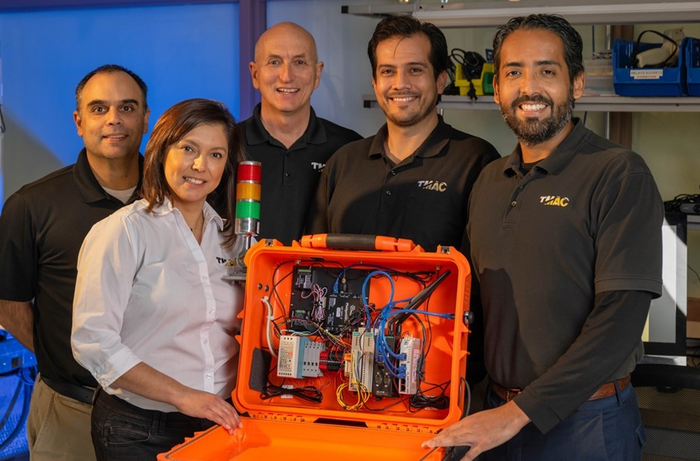The University of Texas at Arlington-based Texas Manufacturing Assistance Center (TMAC) has received a grant worth nearly $500,000 to assist manufacturers in developing and adopting pollution prevention practices that reduce costs and environmental impacts.

Credit: UT Arlington
The University of Texas at Arlington-based Texas Manufacturing Assistance Center (TMAC) has received a grant worth nearly $500,000 to assist manufacturers in developing and adopting pollution prevention practices that reduce costs and environmental impacts.
The $498,836 grant from the Environmental Protection Agency’s Pollution Prevention Program allows both the TMAC Sustainability team and Process Automation Design Engineering (PADE) team to work with manufacturers to prevent pollution in areas considered environmental justice regions. An environmental justice region, or “overburdened” area, is defined as one that is home to minority, low-income, tribal and indigenous populations or communities that potentially experience disproportionate environmental harms.
“The focus is to find manufacturers that are eager to start reducing and preventing pollution,” TMAC Lean Business Advisor Eduardo Amezcua said. “This is a way the companies can give back to their local communities, by taking steps in pollution prevention and providing a cleaner and safer environment for all.”
Smart sensors deployed by the PADE team will provide real-time monitoring of selected environmental metrics before and after recommended improvements to measure reductions and savings. Smart sensors can monitor temperature changes, water consumption, air particulates, energy usage and the financial savings associated with achieving these reductions.
“Sensors can be thought of as the hands, eyes and ears that computers use to understand the world around them,” Amezcua said. “By using sensor technology, we can help clients make evidence-based decisions to improve their businesses.”
The real-time data collection will be directly linked to monitoring displays at the UT Arlington Research Institute Innovation Laboratory for the TMAC Sustainability and PADE teams’ review. This collection of actual data will help support the environmental impact reduction results with quantifiable numbers.
“In the past, TMAC engineers have been limited to a few hours observing and collecting manufacturing impact data during our site visits,” said Kurt Middelkoop, senior sustainability advisor for TMAC. “Once deployed, our sensors can now continuously collect data 24 hours a day for several weeks. This large measurement sample becomes a powerful tool for the organization’s management to have the confidence to make changes based on collected data that will bring significant cost savings and environmental impact reductions.”
TMAC is the Texas representative of the Manufacturing Extension Partnership National Network and works with businesses to help develop and improve their profits, products, processes, technology, and people. TMAC is currently seeking eight companies in the areas of food and beverage, automotive and metal manufacturing and fabrication to be a part of this cost-free training. For more information or to be a part of the training, contact [email protected].
Written by Yesenia Zamora, project marketing manager




